第2章 PREFACE(1)
The Author hopes that the reader may find some historical interest in the tale set out in these pages of the massacre of the Boer general, Retief, and his companions at the hands of the Zulu king, Dingaan. Save for some added circumstances, he believes it to be accurate in its details.
The same may be said of the account given of the hideous sufferings of the trek-Boers who wandered into the fever veld, there to perish in the neighbourhood of Delagoa Bay. Of these sufferings, especially those that were endured by Triechard and his companions, a few brief contemporary records still exist, buried in scarce works of reference.
It may be mentioned, also, that it was a common belief among the Boers of that generation that the cruel death of Retief and his companions, and other misfortunes which befell them, were due to the treacherous plottings of an Englishman, or of Englishmen, with the despot, Dingaan.
EDITOR'S NOTE
The following extract explains how the manuscript of "Marie," and with it some others, one of which is named "Child of Storm," came into the hands of the Editor.
It is from a letter, dated January 17th, 1909, and written by Mr. George Curtis, the brother of Sir Henry Curtis, Bart., who, it will be remembered, was one of the late Mr. Allan Quatermain's friends and companions in adventure when he discovered King Solomon's Mines, and who afterwards disappeared with him in Central Africa.
This extract runs as follows:--
"You may recall that our mutual and dear friend, old Allan Quatermain, left me the sole executor of his will, which he signed before he set out with my brother Henry for Zuvendis, where he was killed. The Court, however, not being satisfied that there was any legal proof of his death, invested the capital funds in trustee securities, and by my advice let his place in Yorkshire to a tenant who has remained in occupation of it during the last two decades. Now that tenant is dead, and at the earnest prayer of the Charities which benefit under Quatermain's will, and of myself--for in my uncertain state of health I have for long been most anxious to wind up this executorship--about eight months ago the Court at last consented to the distribution of this large fund in accordance with the terms of the will.
"This, of course, involved the sale of the real property, and before it was put up to auction I went over the house in company of the solicitor appointed by the Court. On the top landing, in the room Quatermain used to occupy, we found a sealed cupboard that I opened. It proved to be full of various articles which evidently he had prized because of their associations with his earthy life. These I need not enumerate here, especially as I have reserved them as his residuary legatee and, in the event of my death, they will pass to you under my will.
"Among these relics, however, I found a stout box, made of some red foreign wood, that contained various documents and letters and a bundle of manuscripts. Under the tape which fastened these manuscripts together, as you will see, is a scrap of paper on which is written, in blue pencil, a direction signed 'Allan Quatermain,' that in the event of anything happening to him, these MSS. are to be sent to you (for whom, as you know, he had a high regard), and that at your sole discretion you are to burn or publish them as you may see fit.
"So, after all these years, as we both remain alive, I carry out our old friend's instructions and send you his bequest, which I trust may prove of interest and value. I have read the MS. called 'Marie,' and certainly am of the opinion that it ought to be published, for I think it a strange and moving tale of a great love--full, moreover, of forgotten history.
"That named 'Child of Storm' also seems very interesting as a study of savage life, and the others may be the same; but my eyes are troubling me so much that I have not been able to decipher them. I hope, however, that I may be spared long enough to see them in print.